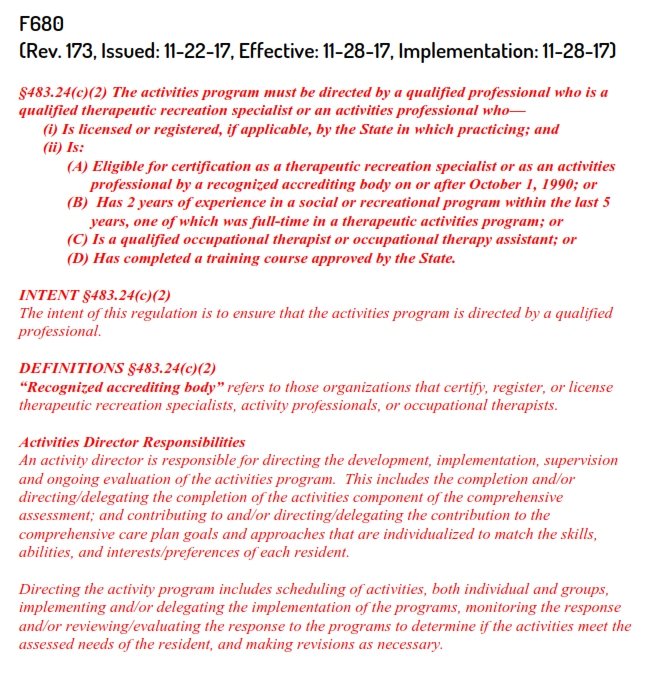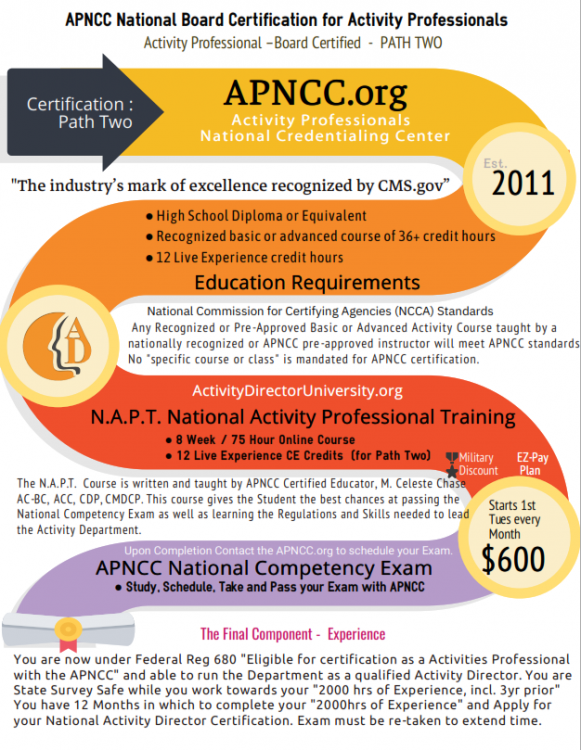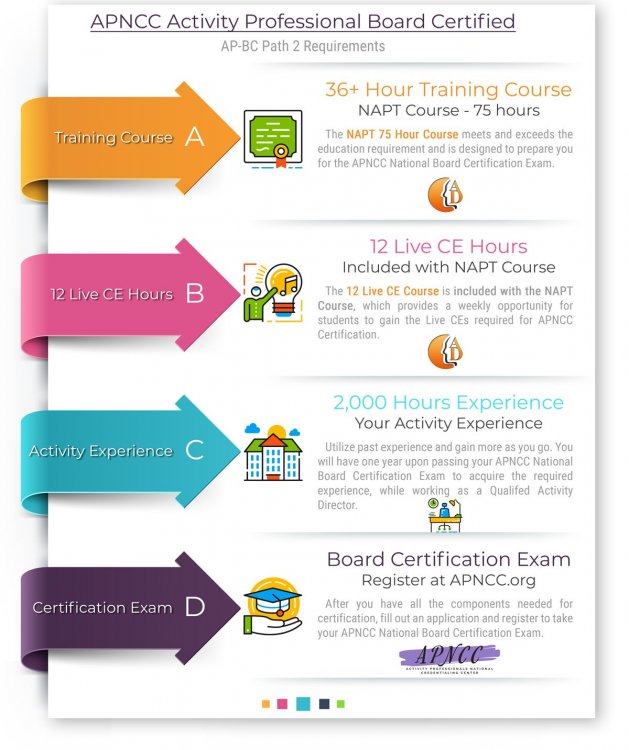Search the Community
Showing results for tags 'activity certification'.
-
View this email in your browser Celebrate Chia Pet Day November 29th I am sure we all remember Chia Pets. They took the world by storm years before any of us realized that the spouts they created are also mega superfood status. Have residents create their own unique chia pets and once they have fully spouted, plan a superfood feast to celebrate. These sprouts are very mildly flavored and go great on sandwiches, salads and Buddha Bowls. Celebrate International Tongue Twister Day November 8th The 14 toughest tongue-twisters in the English language Source: Morgan Cutolo , Reader's Digest 1. 'Pad kid poured curd pulled cod.' A team of researchers from Massachusetts Institute of Technology say that this is the most difficult tongue twister in the world. Can you say it ten times fast? The psychologists who created this tongue twister said that people who attempted to say it either stopped right in the middle of saying it because it was too difficult or could only get through it once and weren't able to repeat it. [The Guinness Book of World Records disagrees...scroll down to see their top pick.] 2. 'Brisk brave brigadiers brandished broad bright blades, blunderbusses, and bludgeons—balancing them badly.' 3. 'If you must cross a course cross cow across a crowded cow crossing, cross the cross coarse cow across the crowded cow crossing carefully.' 4. 'How can a clam cram in a clean cream can?' 5. 'Imagine an imaginary menagerie manager managing an imaginary menagerie.' 6. 'Send toast to ten tense stout saints' ten tall tents.' 7. 'Rory the warrior and Roger the worrier were reared wrongly in a rural brewery.' 8. 'Six sick hicks nick six slick bricks with picks and sticks.' 10. 'The thirty-three thieves thought that they thrilled the throne throughout Thursday.' 11. 'The sixth sick sheik's sixth sheep's sick.' [According to The Guinness Book of World Records, this is the world's hardest tongue twister, not #1 on this list. You be the judge.] 12. 'Can you can a canned can into an un-canned can like a canner can can a canned can into an un-canned can?' 13. 'Thirty-three thirsty, thundering thoroughbreds thumped Mr. Thurber on Thursday.' 14. 'Six sleek swans swam swiftly southwards.' This article has been condensed for space. Check out the whole shabang below... Full Article Celebrate National Nacho Day November 5th Mmmm...nachos. This IS a day to celebrate! You can setup your nacho bar as an actual bar or you can fire up the cart for a room to room delivery service. There are two school's of thought on whether chips should be provided with melted cheddar on them or if a crock pot with liquid cheese is the way to go. For our purposes, a crock pot is probably the best bet to keep things fresh, warm and convenient. For an added perk, this lady created a Desert Nacho Bar, which I think your residents will be all about! I know I am! Next Class Starts November 2nd Visit https://activitydirectoruniversity.org for more information. Activity Directors Network was founded in 1996 on the idea that we could help create elderly care that dramatically improved the lives of those we all serve. We envision facilities that feel like homes and that celebrate our resident’s individuality and allows them to live with dignity, purpose and joy. We believe the exchange of education and wisdom between the most talented teachers and passionate students is the way to make an impact. Each and every single one of you are the revolution that is changing everything. Thanks for being a part of The Network. Copyright © 2021 Activity Directors Network, LLC All rights reserved. Our mailing address is: 2810 US HWY 190 W #100-A9 Livingston, Texas 77351
-
- november activities
- ceu
-
(and 2 more)
Tagged with:
-
Independence for Alzheimer’s Residents When someone has Alzheimer’s with presenting dementia, their cognitive function continues to decline but they still posses’ abilities. In fact, skilled healthcare professionals know that continuing to do as much as they can do at their current ability level stimulates the brain and may even help to maintain skills longer. However, family members unknowingly often cause “excess disability” when in their sincere earnest to be helpful, do everything for his/her loved one to make life less challenging for the dementia diagnosed individual. Excess Disability - “Use it or lose it” When you provide opportunities for residents to do for themselves it prevents those intrinsically rooted skills from becoming rusty and ultimately no longer useable. It cannot be overstated how important purposeful activities are when discussing dementia and topics referencing motivation and engagement. Purposeful activities focused on interests work harmoniously to entice and elicit responses essential to maintain the “use it or lose it” concept. As dementia progresses, older adults are capable of less and less. Helping them find self-motivated desires to participate in everyday tasks and activities can boost mood and improve quality of life and holds the power to raise self-esteem and reduce common dementia behaviors, like agitation, repeated questions, and anger. Adapting everyday tasks with purposeful meaning for the individual diagnosed with dementia will entice and encourage mental stimulation, and provide support as needed to help older adults maintain a sense of independence and accomplishment and that is something everyone of us strive to maintain for as long as it possible. Why Are Dementia Activities So Important? 1. Provides Daily Structure: A structured and consistent daily routine gives needed predictability and stability when the individual is feeling disoriented and confused. 2. Prevents Decline: Continuing to do as many activities and daily tasks as independently as possible helps to preserve innate skills for a longer period of time despite disease progression. 3. Improves Mood: The individuals capabilities continue to decline with disease progression. When individuals participate in everyday tasks can boost mood and improve overall quality of life. 4. Reduce Challenging Behaviors: Challenging behaviors present with less occurrence when opportunities are made available to engage the individual in positive oriented everyday distractions. Thereby, providing a means to release energy and unexpressed emotions. Supporting Remaining Skills Look for adaptive strategies & techniques that focus on strengths/skills that the individual still possesses. Allow the individual to retain as much control as possible to help foster a sense of personal dignity. Integrate “chunking” methods - (break down tasks step by step) move to the next task in the sequence only when the previous one has been completed. Attention span may be limited so plan programs of no more than 20 to 45 minutes of time segments. Programs are most effective when they are multi-sensory & spanned over consecutive days; first day – taste applesauce, next day – taste apple pie, and so on (connects related theme to facilitate memory input). Incorporate events that “elicit” a response through use of basic sensory stimulation & awareness of his/her body movements. Strategies and Techniques Meeting the individual abilities will ensure greater success. Particularly when maintaining the overall goal to support opportunities for independence and accomplishment. Set-Up: Pre-plan what is needed in a manner that cues the resident to complete the task independently. Example: clothing – Place items in order of use: underwear and bra on top, shirt and pants under them. Visual Distance Supervision: Remain within the line of sight to supervise and assist when needed yet distant enough to allow the individual to complete on their own. Example: Drying dishes – stand within visual view to make sure the dishes are properly towel dried - replace the towel when it has become saturated with water. Non Verbal Prompting: Minimize verbal instructions, simply point to the next task in the sequence to give guidance. Example: Point to the place mat. When it is placed on the table, point to the plate or ask what’s next? Gentle Verbal Cues: Provide gentle verbal “cues” only as needed to prevent frustration by stating simply directions for task sequence, allow time as needed for the individual to complete one task before you offer another cue to move onto the next task. Example: Bathing – Pick up the washcloth… turn the faucet on… wet the washcloth. Physical Guidance: Use "hand over hand” or “mirror” techniques to help guide physical actions. Example: Brushing teeth: Stand behind and place your hand over the individuals hand while holding the toothbrush. Gentle provide physical guidance for brushing teeth. Note: “Excess disability” refers to the loss of an ability that comes from something other than the disease or impairment itself. In dementia care, this generally refers to the loss of abilities that go beyond the physiological changes that are caused by the dementia. You can become the catalyst to support your residents’ independence by proactively preserving your residents’ existing abilities to help them maintain their dignity, self-esteem and enjoy a well deserved quality of life experience well into their senior years and that’s a pretty amazing accomplishment! Have a topic request or question for Celeste? Send them over to celestechase@activitydirector.org Activity Directors Network was founded in 1996 on the idea that we could help create elderly care that dramatically improved the lives of those we all serve. We envision facilities that feel like homes and that celebrate our resident’s individuality and allows them to live with dignity, purpose and joy. We believe the exchange of education and wisdom between the most talented teachers and passionate students is the way to make an impact. Each and every single one of you are the revolution that is changing everything. Thanks for being a part of The Network. Copyright © 2021 Activity Directors Network, LLC All rights reserved. Our mailing address is: 2010 US HWY 190 W Ste 120 Livingston, Texas 77351
-
- activity director
- activity certification
-
(and 1 more)
Tagged with:
-
Memory, Forgetfulness, and Aging: What's Normal and What's Not? In general as we age, we begin to notice and worry about memory and how aging may or may not change our cognitive abilities. For example, we might forget to pay the bills or find ourselves unintentionally leaving a boiling pot of water on the burner. Such instances can be upsetting but are often considered to be “mild forgetfulness” that is often a normal part of aging. Facility Programming What's the difference between normal, age-related forgetfulness and a serious memory problem? When memory related issues prevent the individual from attending to everyday tasks that are required to maintain a self-sufficient independent lifestyle, it may indicate further investigation. Signs may include: Repeating the same questions over and over again Confusion in familiar places Inability to proceed independently from task to task in sequential order Disorientation concerning time, people, and places Mild Cognitive Impairment Some older conditions known as mild cognitive impairment (MCI), relate to memory deficits that are not in keeping with common aging related problems. However, individuals with MCI can usually take care of themselves and do their normal activities. MCI may be an early alert warning that points to Alzheimer’s disease, but not everyone with MCI will develop Alzheimer's. Signs of MCI include: Misplacing or losing things more frequently Not recalling important events or appointments Presenting with “aphasia” (difficulty with word finding) more than other individuals of the same age Diagnosed instances of MCI, are tracked every six to 12 months to document changes in memory and other thinking skills over time. Dementia and Aging I often am asked about Dementia. There is a great deal of confusion on the topic. To be clear, Dementia is not a normal part of aging. Dementia is not in of itself a disease. Instead, it's a group of symptoms caused by other conditions. Dementia is a group of conditions characterized by impairment of at least two brain functions, such as memory loss and judgment. Many things can cause dementia. It happens when the parts of the brain used for learning, memory, decision making, and language are damaged or diseased. Symptoms include forgetfulness, limited social skills, and thinking abilities so impaired that it interferes with daily functioning. Medications and therapies may help manage symptoms. Some causes of dementia are reversible. While there are different forms of Dementia, Alzheimer's disease is the most common disease associate with Dementia for those over the age 65. There are a number of other diseases and circumstances presenting with dementia affecting both young and old. The most common causes of Dementia include: Degenerative neurological diseases. These include Alzheimer’s disease, Parkinson’s disease, Huntington’s disease, and some types of multiple sclerosis. These diseases are progressive, get worse over time. Vascular disorders. These conditions affect the blood circulation in the brain. Traumatic brain injuries (TBI) caused by car accidents, falls, concussions, etc. More recently presenting in football athletes (Chronic Traumatic Encephalopathy – CTE). Infections of the central nervous system. These include meningitis, HIV, and Creutzfeldt-Jakob disease. Long-time alcohol or drug use Certain types of hydrocephalus, a buildup of fluid in the brain. NOTE: Hydrocephalus is a condition in which an accumulation of cerebrospinal fluid (CSF) occurs within the brain. This typically causes increased pressure inside the skull. Older people may have headaches, double vision, poor balance, urinary incontinence, personality changes, or mental impairment. Source: https://www.nia.nih.gov/health/memory-forgetfulness-and-aging-whats-normal-and-whats-not https://www.webmd.com/alzheimers/types-dementia#1 This chart explains some differences between normal signs of aging and Alzheimer's. Have a topic request or question for Celeste? Send them over to celestechase@activitydirector.org Activity Directors Network was founded in 1996 on the idea that we could help create elderly care that dramatically improved the lives of those we all serve. We envision facilities that feel like homes and that celebrate our resident’s individuality and allows them to live with dignity, purpose and joy. We believe the exchange of education and wisdom between the most talented teachers and passionate students is the way to make an impact. Each and every single one of you are the revolution that is changing everything. Thanks for being a part of The Network. Copyright © 2021 Activity Directors Network, LLC All rights reserved. Our mailing address is: 2010 US HWY 190 W Ste 120 Livingston, Texas 77351





